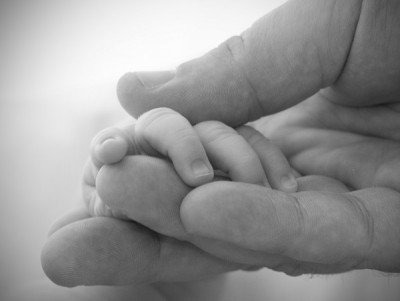
Fathers around the world have established the leadership of their home based on their strength and power. This approach is one that results in superficial relationships and children who do not know God’s love or character. God has shown us another way. The way of meekness.
Stick Up for Your Rights?
In the first analysis it appears the person who does not demand his own rights, who does not seek his own interests, who does not retaliate when wrongs are done against him is weak or afraid. But have we considered that this apparent weakness could actually be a sign of strength? A wronged person if he is strong enough may choose to seem weak?
All Powerful
Jesus was the most powerful man on the planet (Matthew 28:20) and, yet, He was also the meekest man. He invites us to study and learn of His meekness (Matthew 11:28,29) and promises if meekness is understood our souls will experience rest. You see, the source of meekness is strength. And the way of rest is surrender not war.The source of meekness is strength. And the way of rest is surrender not war. Click To Tweet Jesus, the king of glory, emptied Himself of the rights He had as the king, became a man and offered Himself as a sacrifice for those He served. Through His meekness He opened the door to intimate relationships with whosoever would go through it. In the same way a father, through laying down his own glory and rights opens the door to intimate relationships with those in his household. It looks like weakness but in reality it is meekness – the only way to inherit the promises of God (Matthew 5:5).
True Meekness
A truly meek father is meek because he has chosen to be meek. He has chosen to take the seemingly weak position in order to create peace and rest in the home and with it create the potential for intimate relationships. God gives us opportunities to be weak knowing that when we are meek His glory is revealed. When we are weak, then we are strong (2 Corinthians 12:10). His strength to love, to forgive, to encourage, and to heal is made complete when we put our self life aside and become weak. Every time a child exerts his own selfishness and tries to push his parents around the parent has a choice – I can fight power with power, or I can fight power with meekness. Do I create fear in the child’s heart or respect? Power creates fear. Love creates honor. Meekness allows me to see that my child is but dust and to respond in love to the situation.
Teachable Moments
We often hear of teachable moments. The greatest teachable moment for a parent is when a child sins – blatantly and openly sins. What can we teach him? The greatest lesson a human being can learn – what it means to be forgiven. Fathers don’t provoke your children to become angry by expecting more of them than they can do. Yes you are right and no little Johnny shouldn’t act like that, but be careful; a child is easily discouraged thinking he will never make you happy. Meekness means I restrain and control my actions knowing that what is happening is happening for my sake and it is an opportunity to reveal God’s glory. I submit my will to God’s will – this is meekness (Luk 22:42). I choose to be content in whatever the circumstances.
Meekness is not weakness. It is the power to submit to God's love Click To TweetLooking at meekness in this way certainly puts to rest the idea that meekness is weakness. When a dad puts down his pride and personal hurt and decides to approach his child with gentleness he has exercised the greatest strength of all. A dad who is strong and secure in the love of God is free to treat his children with meekness. Meekness is not weakness. It is the power to submit to God’s love. A Father’s gentleness when looked upon from his child’s perspective evokes a wholehearted response: “Dad, it is your gentleness that makes me great!” (Psalm 18:35).